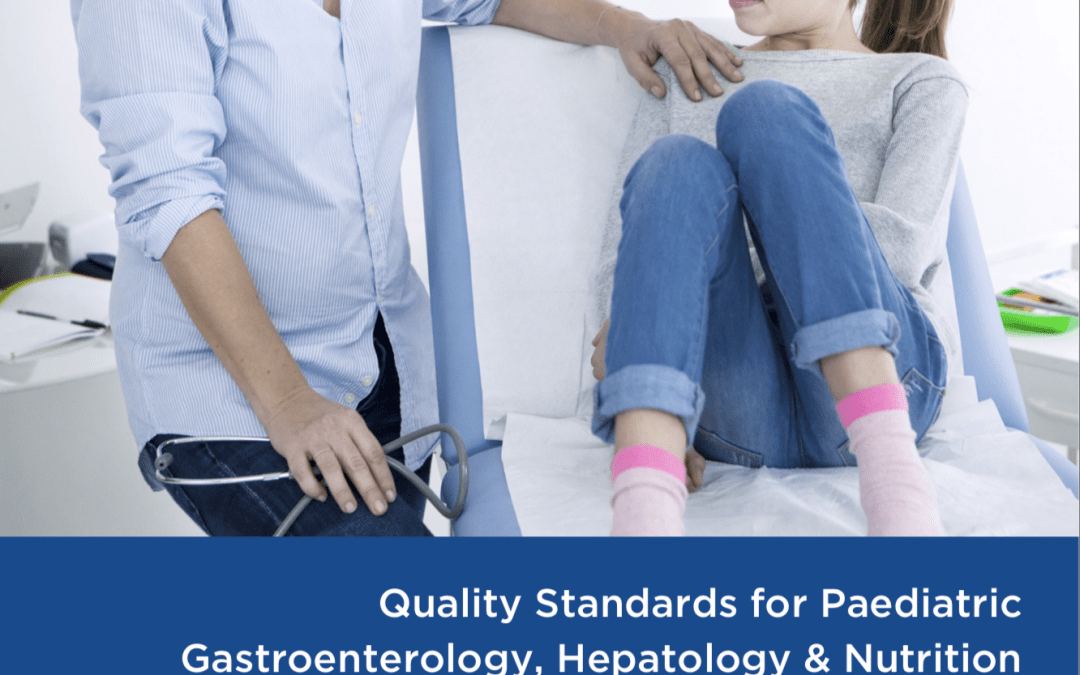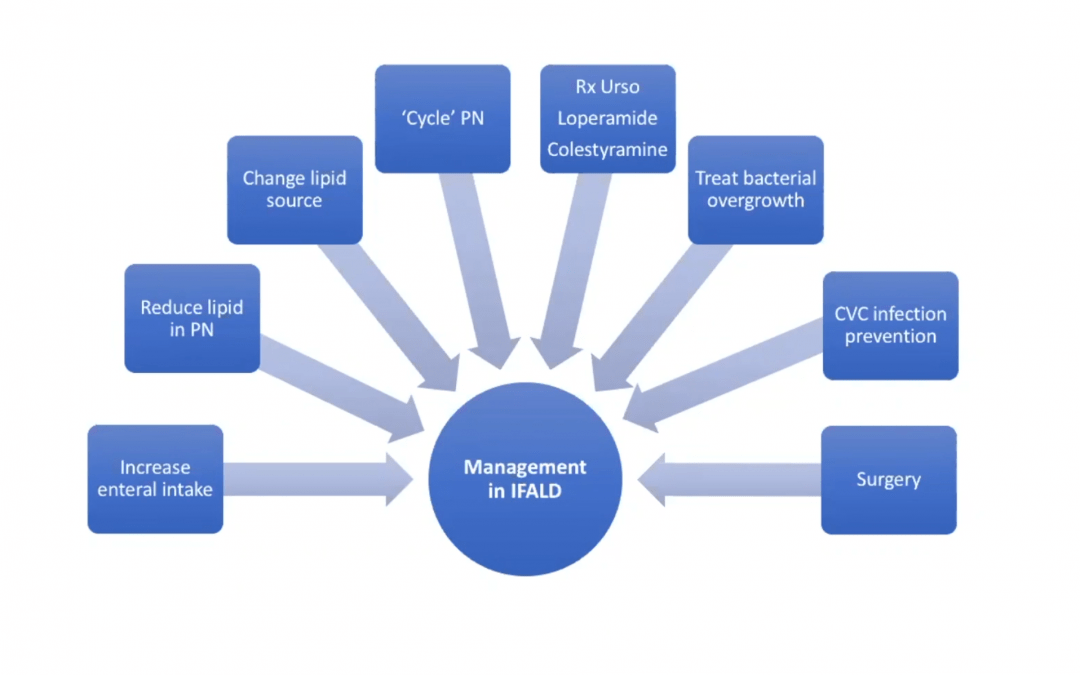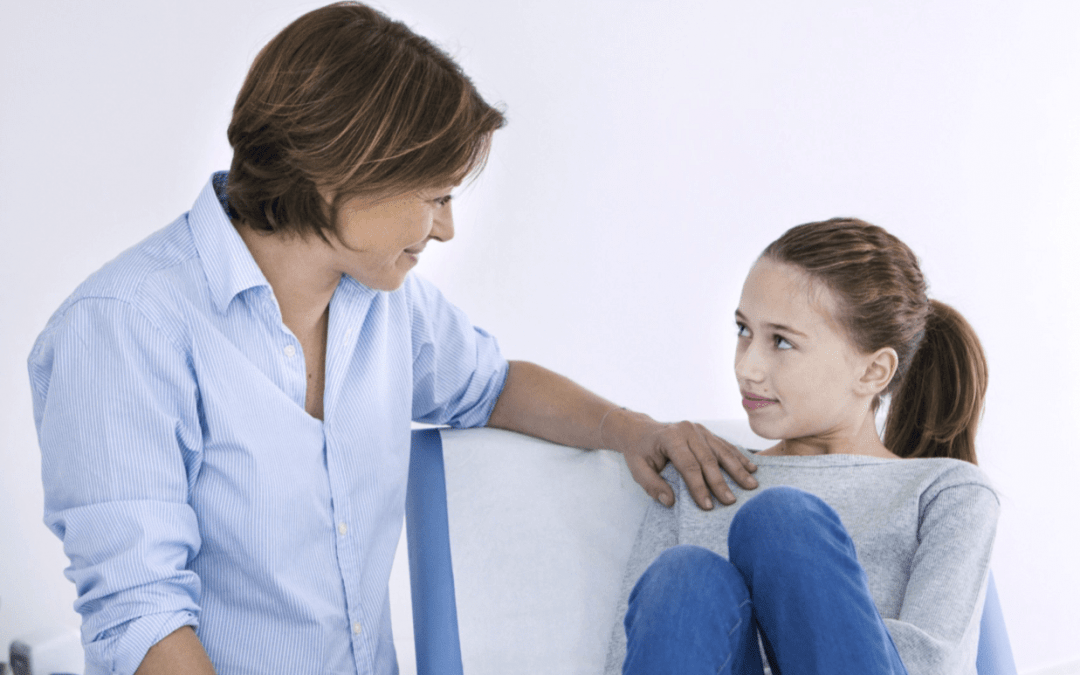
by BSPGHAN | Jun 28, 2020 | News
Dear Members
- Pause of the National Audit of Quality Standards for Paediatric Gastroenterology, Hepatology and Nutrition (‘the PGHAN Audit’).
The RCPCH/BSPGHAN PGHAN Audit Project Team have put the audit on hold during the COVID-19 pandemic and will reinvigorate the audit in August. The pause has given us an opportunity to discuss consider potential changes to the dataset that might be required due to the effects of COVID-19 on the healthcare system and PGHAN services in particular.
I am grateful for all of your input and support with the PGHAN Audit to date. The dataset had been agreed and built into a data platform which was ready to pilot in May/June. The PGHAN Audit clinical lead had registered in around 45% of Health Boards and Trusts across the UK by the end of April.
Please can I ask you to contact your Medical Director if you haven’t recruited a PGHAN Audit clinical lead.
The pause in the audit has offered us chance to reflect on its purpose in the context of BSPGHAN’s strategic intentions-
- To continue to examine PGHAN professional networks and see how BSPGHAN can support research, education and training,
- To allow us to consider the impact and value on PGHAN health care provision that the BSPGHAN Clinical Standards provide,
- To reflect critically on BSPGHAN’s function, to promote national best practice and outcomes of our patients especially moving forward from paused activity,
- To harness opportunities to support service resetting and recovery post COVID-19, and how this may be done at a national level,
- To harness opportunities to sustain any positive changes in the way we work, capturing innovations that have been rapidly developed during the pandemic (Please still feedback to me on innovations. See below **).
Additionally, it is timely to reflect on further intentions-
- To accelerate BSPGHAN’s national education strategy to develop virtual learning opportunities for trainees and members,
- To use our new website to share education / clinical updates; to measure the impact of the content of our new site;
- To build on the closer links that have arisen during the pandemic when writing joint rapid updates for example; for BSPGHAN to work more closely with key stakeholders such as the BSG, Royal College and charitable partners
- To support the productivity of BSPGHAN “task and finish” projects– using virtual get togethers. I hope that remote meetings will encourage participation from more members from devolved nations and foster rapid outputs from council and working groups.
2. Shielding Update
I know most will have seen the latest shielding letter from the Chief Medical Officer & NHS Medical Director AVAILABLE HERE which provides New clinical evidence on children
Recent experience and knowledge of the impact COVID-19 infection has on children and young people with comorbidities suggests not all those on the Shielded Patient List need to be shielding. RCPCH recently published updated guidance which paediatric patient groups they think should be advised to shield. They have identified three groups:
- children and young people who are cared for just in primary care are very unlikely to need to continue to shield;
- a small group of children who are clinically extremely vulnerable due to their pre-existing condition will need to continue to shield; and
- a further larger group of children exists who due to their underlying condition may need to shield and the decision to continue to shield would normally result from a discussion between the clinician, the child and their family.
RCPCH expect that all patients who need to continue to shield will be seen in a specialist centre before September 2020 (but not all those with specialist appointments will need to shield). Decisions on shielding will generally be led by a specialist, balancing the clinical and social impact of shielding. Patients should only be removed from the Shielded Patient List by their GP or specialist following consultation with the child and their family, and other clinicians where appropriate.
Further guidance on having conversations with children and families can be found on the RCPCH website The Government works closely with the RCPCH and welcomes their valuable scientific input. We recommend that clinicians follow up with children (and their parents) on the Shielded Patient List to discuss what RCPCH guidance means for them.
Risk stratification (adults) A team academics have been working with clinicians to develop a predictive risk model that reflects a wider range of factors such as demographics alongside long-term health conditions, to better understand cumulative risk of serious illness for individuals if they catch COVID-19. The COVID19 risk stratification model will be set out in the BMJ soon . It will only be for people aged 18 years as fortunately there’s a paucity of data for modelling in children and young people — see the publication of the research protocol
3. Feedback from members on Service Innovations **
I mentioned a few weeks back, I am keen to capture service changes relevant to our patients.
This is a polite nudge to ask those of you who haven’t got back to me, for your thoughts, so that I can make sure they’re captured.
See survey via this link or see the questions below
https://forms.office.com/Pages/ResponsePage.aspx?id=kp4VA8ZyI0umSq9Q55Ctv-zG7vHjmaZJg9s6K87uGnpUMlIzVEhLTlY2VlZGU0RIV1BJQjZGMFZNUSQlQCN0PWcu
The survey asks the following four questions:
- What beneficial innovations/changes have occurred in your specialty and within patient pathways?
- Please describe the impact of these innovations/ changes (e.g. population health outcome, patient outcome, safety, wider system, efficiency, productivity). How did you measure the benefit?
- What is needed to sustain the change?
- What, if anything, hasn’t worked so well.
Thank you for getting back to me by 4pm on 30th June. If you can’t make this deadline, please still feedback as your input will be useful to harness and share improvements in patient pathways.
4. ACCEA secretariat update
Ministers agreed the suspension of the 2020 national Clinical Excellence Awards round https://www.gov.uk/government/news/extension-to-clinical-excellence-awards-due-to-expire-in-april-2021
Subject to Ministerial agreement, there will be an extended National awards 2021 competition, with a lengthened timetable from November 2020 until the end of January 2021.
Please stay well and as always, I welcome your involvement and your feedback.
Best wishes
Sue
Sue Protheroe
BSPGHAN President
28th June 2020
Email: President@bspghan.org.uk

by BSPGHAN | Jun 27, 2020 | BSPGHAN Education Series, BSPGHAN Education Series- Nutrition
This page is restricted to BSPGHAN members.
Please login.

by BSPGHAN | Jun 14, 2020 | Hepatology, IBD, News
Dear members
COVID-19 has sadly shown that colleagues and patients from BAME communities have been disproportionately affected by COVID-19. Acknowledging and actively mitigating health inequalities is rightly high on our agenda. Recent events have additionally brought into sharp focus the need to tackle discrimination of any kind. Many young people have led the way and seized the opportunity to highlight these issues peacefully. Thinking of the young people we look after, an opinion piece in The Lancet Child & Adolescent Health https://www.thelancet.com/journals/lanchi/article/PIIS2352-4642(20)30186-3/fulltext
has highlighted the damaging long term consequences of lack of face to face contact among young people and their peers.
We are now actively offering personalised discussions with families and young people to support continued shielding or easing of restrictions. Not all those children and young people who are currently advised to shield need to continue to do so and can return to school as it reopens where the benefits of school – in terms of access to therapies and developmental support – far outweigh the risk of infection.
This week, we will all wear face masks more widely and continue social distancing to keep our patients safe. The impact of the 2m social distancing rule in hospital impacts on our ability to reset, restore and recover health services. In England, today the Government announced that it is undertaking a review of 2m rule regarding economic recovery and we await their deliberation.
1. Shielding update for children and young people
On June 10th, the RCPCH released advice this advice on shielding guidance for children. Its aim is to support clinicians in their discussions with patients and their families/carers about the risks and benefits associated with shielding. It specifically considers children with paediatric gastroenterology, hepatology and nutritional problems using the available evidence More information is available from British Society for Paediatric Gastroenterology, Hepatology and Nutrition.
The update seeks to support the trusted relationship between patients and their doctors.
https://www.rcpch.ac.uk/resources/covid-19-shielding-guidance-children-young-people
RCPCH have offered advice regarding returning to school https://www.rcpch.ac.uk/resources/covid-19-talking-children-families-about-returning-school-guiding-principles
In England, the NHS sent a letter to NHS trusts and primary care on 4 June which outlines changes and the process for maintaining list of shielded patients (additions and removals) – see here: https://www.england.nhs.uk/coronavirus/wp-content/uploads/sites/52/2020/06/C0583-nhs-update-on-shielding-june-2020.pdf
1. Shielding update for children and young people
On June 10th, the RCPCH released advice this advice on shielding guidance for children. It’s aim is to support clinicians in their discussions with patients and their families/carers about the risks and benefits associated with shielding. It specifically considers children with paediatric gastroenterology, hepatology and nutritional problems using the available evidence More information is available from British Society for Paediatric Gastroenterology, Hepatology and Nutrition.
The update seeks to support the trusted relationship between patients and their doctors.
https://www.rcpch.ac.uk/resources/covid-19-shielding-guidance-children-young-people
RCPCH have offered advice regarding returning to school https://www.rcpch.ac.uk/resources/covid-19-talking-children-families-about-returning-school-guiding-principles
In England, the NHS sent a letter to NHS trusts and primary care on 4 June which outlines changes and the process for maintaining list of shielded patients (additions and removals) – see here: https://www.england.nhs.uk/coronavirus/wp-content/uploads/sites/52/2020/06/C0583-nhs-update-on-shielding-june-2020.pdf
Further advice is expected to be released this week from June 15th.
.2. Updated shielding guidance for children with chronic liver disease and those on and those on immunosuppression (autoimmune liver disease and liver transplantation) June 11th https://bspghan.org.uk/wp-content/uploads/2020/06/Updated-shielding-guidance-for-children-with-chronic-liver-disease-and-those-on-immunosuppression_TG-1.pdf
In view of evidence and increasing knowledge in the COVID-19 pandemic, the 3 paediatric Liver Centres updated the advice to children and families with chronic liver disease. This advice is generated following communication with colleagues from other societies (BTS, BLT, BSG, BASL) and referencing to documents released by PHE, GOV, ERN-Rare Liver, RCPCH and NHSE.
- Exit strategy from the Coronavirus (Covid 19) lockdown and ‘enhanced social distancing’ (shielding) for children and young people receiving home parenteral nutrition (HPN); a decision making framework from the BSPGHAN Nutrition and Intestinal Failure working group
https://bspghan.org.uk/wp-content/uploads/2020/06/Exit-strategy-from-the-Coronavirus-lockdown-and-HPN-.pdf
Key points
- children and young people receiving HPN were advised to ‘shield’ when lockdown commenced in March 2020
- it is now apparent that gastrointestinal manifestations of Covid19 in children are mild and self limiting
- we have not identified any reports of severe complications of covid19 in short bowel syndrome (SBS), intestinal failure (IF) or HPN from Covid19, in the adult and paediatric medical literature
- mental health of children required to take quarantine measures is well described with anxiety, distress and increased risk of major mental health disorders
- all HPN children should no longer be considered ‘extremely vulnerable’ since negative social and developmental effects would appear to outweigh protection
- patients and families should have a balanced conversation about returning to school. They may wish to take a tailored approach, such as following in two weeks behind their peers to assure that initial logistics of social distancing are being followed
- If a child has coexisting disease, e.g. cardio-respiratory, neurodisability, immunodeficiency, inflammatory bowel disease (IBD) or is on certain immunosuppressive treatment that would not in itself be severe enough to warrant shielding, clinicians may wish, in conjunction with other speciality teams and families consider that the patient should continue shielding from cumulative multi-organ risk.
- The BSPGHAN motility working group has produced guidance on
Restarting neurogastroenterology and motility investigations in paediatrics. BSPGHAN Motility Working Group guidance (June 2020).
This describes restoration of neurogastroenterology for the common GI functional testing based of the best available evidence
https://bspghan.org.uk/wp-content/uploads/2020/06/Restoration-of-neurogastroenterology-and-motility-investigation-in-paediatrics-June-2020.pdf
During the height of Sars-CoV-2 transmission there were almost complete halt to gastrointestinal motility investigations as they are considered non urgent aerosol generating procedures (AGP). With the infection rate recessing in the UK, most NHS Trusts are slowly increasing capacity for elective work. Particular attention is drawn to AGP to minimise the infection risk to children and healthcare professionals.
The Motility Working Group aim is to provide guidance for clinicians on the safe restoration of selected gastrointestinal motility investigations; this guidance is based on the current evidence but this is a rapidly evolving subject and the guidance many change over time. The working group will endeavour to update this document if new information become available
- ESPGHAN Advice Guide – Treatment of Chronic Hepatitis C Infection in children
https://bspghan.org.uk/wp-content/uploads/2020/06/Treatment_of_Chronic_Hepatitis_C_Virus_Infection_in_Children._ESPGHAN_Advice_Guide._2020._Ver1.2.pdf
- BSG advice
In guidance on restarting endoscopy services the BSG has suggested treating patients (< 55 years) with suspected coeliac disease and a tTG >x10ULN without biopsy.
Here is the protocol further detailing this advice, which is specific to the COVID-19 environment and has been issued as interim guidance pending the publication of the new BSG Coeliac Guideline expected to be published in 2021. https://www.bsg.org.uk/covid-19-advice/covid-19-specific-non-biopsy-protocol-guidance-for-those-with-suspected-coeliac-disease/
Management of acute severe ulcerative colitis (ASUC) during the novel coronavirus 2019 (COVID-19) pandemic presents significant dilemmas. The BSG panel includes members of BSPGHAN and aimed to provide COVID-19-specific guidance using current British Society of Gastroenterology (BSG) guidelines as a reference point.
https://www.bsg.org.uk/covid-19-advice/adaptation-of-the-bsg-guidelines-on-the-management-of-acute-severe-ulcerative-colitis-in-the-context-of-the-covid-19-pandemic-a-rand-appropriateness-panel/
With very best wishes to you all.
Sue
BSPGHAN President, e-mail President@bspghan.org.uk
June 14th 2020

by BSPGHAN | Jun 7, 2020 | News
Dear members
This week there is has been much to watch. We are uncertain what releasing of lockdown means in terms of keeping our patients and ourselves safe; what antibody testing of NHS staff may mean, if contact tracing, and wearing of surgical masks in public, and quarantine for travellers, may contain a second wave of Covid-19. We are watching out for the new paediatric multi system inflammatory syndrome, vaccine development , and the scramble for Covid-19 trial outcomes. What does seem certain is that harnessing new ways of working, planning the recovery of services and maintaining social distancing will be important to maintain for many months as we move out of lockdown and start to resume paused activity.
Please do take the time to respond to the request the questions in the survey so that Bspghan can support members in capturing beneficial clinical changes
Update to RCPCH advice – Shielding children
BSPGHAN continues to work with colleagues in the RCPCH to produce guidance on which children remain more at risk of COVID-19 related disease. It hasn’t been straightforward to produce the update with the uncertainty of what the releasing of lockdown/ school return will mean at this stage of the pandemic. Publication of the document is expected this week. The delay will allow engagement with colleagues in primary care, and more widely across the UK through the CMOs, thereby maximising the benefits of the update into a wider policy around shielding.
Resetting, restoring and recovering services
The ability of PGHAN services to deliver care during the pandemic has also been tested. Now we are moving forward re-starting services. The need for ‘COVID- safe’ practice with social distancing, will be a reality for the medium to long term and challenge our ability to manage the backlog of clinics and endoscopy cases.
A robust system of documenting patients waiting, and triaging is important.
The RCPCH has set out principles for recovery here:-
https://www.rcpch.ac.uk/sites/default/files/2020-05/reset-restore-recover-rcpch-principles-for-recovery-2020-05-20.pdf
- Planning children’s health services should be reset and underpinned by data and evidence so that innovation and new models of care that meet the needs of children and young people are maintained.
- Delivery of children’s health services should be restored so that all children and young people receive high-quality, safe and effective care in every setting, ensuring timely diagnosis with a particular focus on supporting community services. There should be no diminution in facilities and adherence to current standards must be maintained.
- The paediatric workforce should be recovered, bringing paediatricians back to children’s services and their training pathway, including sharing new ways of working with a focus on wellbeing.
Capturing beneficial clinical changes in the NHS – please check the NHS E survey questions in the link and please respond to enable Bspghan to share innovative ways of working with members.
In response to the challenges of delivering care during the pandemic, new and innovative ways of working have been rapidly developed across the NHS.
As we move into the next phase of NHS recovery, NHSEI wants to ensure beneficial changes to care are embedded in our services so that patients benefit over the next 12 months and beyond.
BSPGHAN will send in a response, to be populated by your returns.
I am keen to hear from everyone (not just from those in England), what beneficial clinical changes/ innovations have occurred within our speciality to share with members.
Please think of examples of what you’ve seen working well that should be captured and sustained, and what is needed the sustain the change.
It would be handy to describe the impact of these innovations in terms of patient’s outcomes , safety, productivity and how the benefits are measured.
Please do take the time to :-
- a) email me at President@Bspghan.org.uk with your examples and
- b) open the short survey questions in this link – members in England can of course respond and share your thoughts too.
Impact of pandemic on Training
Training have been disrupted with a loss of the usual learning opportunities, particularly where endoscopy procedures and clinics have not taken place.
As clinical services begin to be restored, the urgency to deliver on the backlog of elective care, and the need to limit face-to-face clinics will continue to compromise training opportunities.
BSPGHAN Trainees have found ways to interact and learn with weekly Zoom teaching to make up for lack of opportunities to meet the curricular requirements in the expected way.
BSPGHAN will support these sessions and endorse these as we hear that for around 50% of trainees, formal weekly teaching has not been restored.
Trainees have been advised by CSACthat changes have been made to ARCP outcomes; see https://www.copmed.org.uk/publications/covid-20 to enable as many doctors in training as possible to progress. PGHAN supervisors are asked to focus on delivering high quality supervision and teaching with clear plans to address the shortfall in experience that has resulted from the loss of training opportunities during the pandemic.
Interesting read
Epidemiology, Clinical Features, and Disease Severity in Patients with Coronavirus Disease 2019 (COVID-19) in a Children’s Hospital in New York City, New York
https://jamanetwork.com/journals/jamapediatrics/fullarticle/2766920?utm_source=undefined&utm_campaign=content-shareicons&utm_content=article_engagement&utm_medium=social&utm_term=060320#.XtgWQRKCuQM.email
Key findings from a case series of 50 children and adolescents 21 years and younger hospitalized with COVID-19 infection.
- Respiratory symptoms, while common, were not always present.
- Children commonly had comorbidities (immunosuppression including solid organ transplant * neurological disease, asthma, genetic and cardiac disease etc)
- Infants and immunocompromised patients were not at increased risk of severe disease.
- Obesity was significantly associated with disease severity.
- Elevated inflammatory markers were seen in those with severe disease.
*including hepatitis in one patient who received a liver transplant for whom the donor was found to be SARS-CoV-2–positive posttransplant
I hope that these updates are of interest and that you and your family and friends continue in good health.
As always, I welcome your feedback via email President@Bspghan.org.uk
Sue Protheroe
BSPGHAN President
7th June 2020




